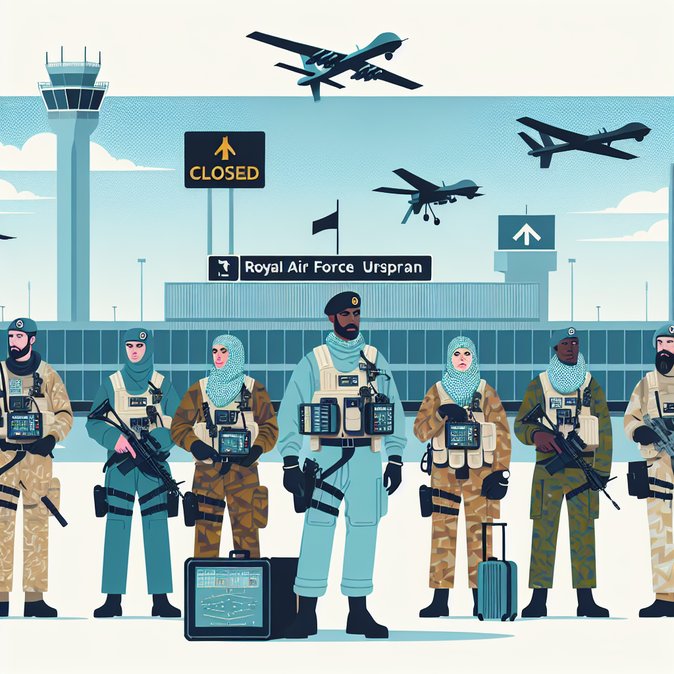
The U.K. Ministry of Defence confirmed on 10 November that it is sending Royal Air Force engineers and electromagnetic jammers to Belgium at the latter’s request, describing the mission as a response to ‘rogue drone activity that resembles Russian hybrid tactics’.
Air Chief Marshal Sir Richard Knighton told the BBC that British personnel had begun arriving over the weekend and would work under Belgian command to protect Zaventem, Liège and key NATO facilities. Defence Secretary John Healey framed the move as ‘alliance solidarity’ and indicated that similar rapid-assist packages could be extended to other European airports facing unmanned incursions.
![U.K. Deploys RAF Specialists to Belgium Amid ‘Hybrid Warfare’ Concerns]()
For international employers the deployment is a double-edged sword: while extra capability should reduce the probability of sudden airport shutdowns, it also signals elevated threat levels. Companies with time-sensitive shipments or executive travel through Brussels are advised to monitor NOTAMs and governmental travel advisories in real time.
The RAF team is expected to stay “as long as operationally necessary,” according to Belgian officials, raising questions about cost-sharing and command-and-control arrangements between allied forces and civilian aviation authorities. Legal experts note that liability for any accidental signal interference will need clear memoranda of understanding, especially under EU aviation-safety rules.
Analysts say the case could accelerate joint procurement of counter-drone assets within the EU’s Permanent Structured Cooperation (PESCO) framework, giving corporates a glimpse of how fast-evolving security threats can ripple into mobility logistics, insurance premiums and crisis-management planning.
Air Chief Marshal Sir Richard Knighton told the BBC that British personnel had begun arriving over the weekend and would work under Belgian command to protect Zaventem, Liège and key NATO facilities. Defence Secretary John Healey framed the move as ‘alliance solidarity’ and indicated that similar rapid-assist packages could be extended to other European airports facing unmanned incursions.

For international employers the deployment is a double-edged sword: while extra capability should reduce the probability of sudden airport shutdowns, it also signals elevated threat levels. Companies with time-sensitive shipments or executive travel through Brussels are advised to monitor NOTAMs and governmental travel advisories in real time.
The RAF team is expected to stay “as long as operationally necessary,” according to Belgian officials, raising questions about cost-sharing and command-and-control arrangements between allied forces and civilian aviation authorities. Legal experts note that liability for any accidental signal interference will need clear memoranda of understanding, especially under EU aviation-safety rules.
Analysts say the case could accelerate joint procurement of counter-drone assets within the EU’s Permanent Structured Cooperation (PESCO) framework, giving corporates a glimpse of how fast-evolving security threats can ripple into mobility logistics, insurance premiums and crisis-management planning.







